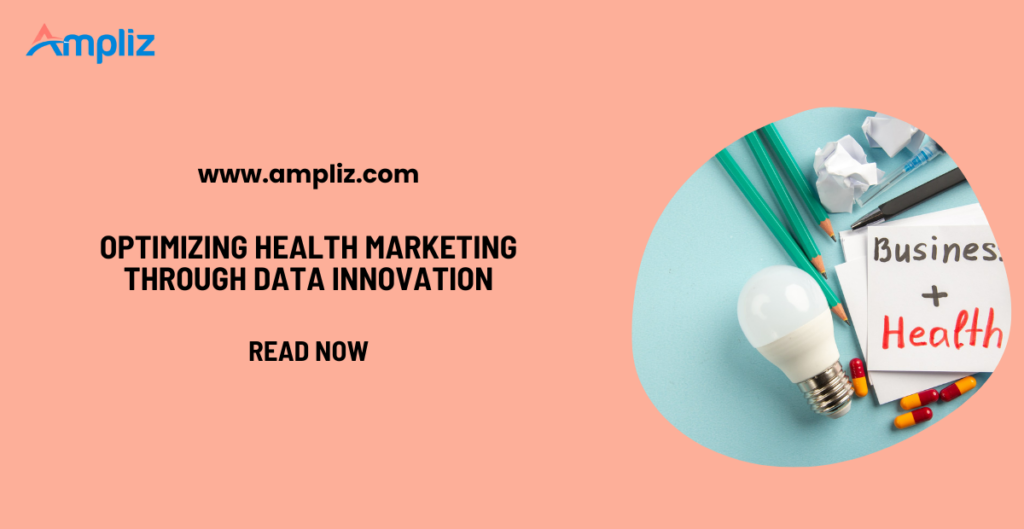Traditional health marketing methods are becoming outdated and cannot meet the growing need for personalized care. Generic campaigns need to be fixed, making connecting patients and providers difficult.
Thanks to changes in data, healthcare marketers can use advanced tools and analytics to create accurate, effective plans. This change reshapes how the health industry interacts with people, enhancing engagement and leading to better results.
The Role of Data Innovation in Healthcare Marketing
Figuring Out What the Patient Wants and Needs
Data analytics lets marketers examine specific patient details to learn more about their demographics, medical histories, and preferred ways of engaging with the brand.
For example, predictive models can show which patients most likely benefit from certain medicines. This lets doctors and nurses contact those patients at the right time. People are more likely to trust their healthcare workers when they can connect with their communities better.
Improving the Effectiveness of Campaigns
Marketers can find the best strategies and platforms by looking at data in great detail. One way to find out what your patients like is to look at how many people visit or connect with a website on social media. It is possible to make ads even more targeted and make good use of resources with real-time info.
Identifying Emerging Trends
Healthcare needs to change quickly. Marketers can identify trends by examining large datasets. For example, they might see more people using telehealth or focusing on mental health. With these insights, businesses can predict how patients’ tastes will change and adjust their plans accordingly.
Integrating Comprehensive Databases with Nutritional Technologies
Creating Comprehensive Patient Profiles
A detailed database that merges electronic health records, information from wearable devices, and other health metrics can assist healthcare professionals in gaining a fuller understanding of each patient and finding solutions that benefit everyone involved.
Enhancing Personalized Nutrition Plans
Marketers can offer tailored dietary advice by blending data insights with the latest nutritional technologies. Products such as Performance Lab demonstrate how supplements can assist individuals in achieving their health objectives, highlighting the innovation within this industry.
Putting Data to Use in Real-Life Health Problems
Data is more than theory; it can be put into practice. By using integrated databases to assess patients’ needs, marketers can use tailored outreach that feels personal and relevant to address real-world health problems, such as managing chronic conditions and making people healthier overall.
Cutting-Edge Tools Influencing Targeted Outreach
Using Predictive Analytics
Predictive analytics helps marketers understand what patients need and how they behave. Understanding how people have interacted with healthcare professionals in the past can help shape the language used in new campaigns, ensuring they hit the mark and succeed.
Utilizing Artificial Intelligence and Machine Learning
Smart technologies like AI and ML turn unstructured data into useful insights. These tools help marketers send ads to specific groups of people based on their lifestyles, preferences, or risk factors.
Using AI-driven tools to get more people involved
AI chatbots offer personalized help and increase patient involvement by answering questions quickly and correctly. In addition to improving patients’ experiences, these tools help marketers reach more people.
Enhancing Patient Engagement Through Real-Time Data
Making the Most of Wearable Tech
Wearable devices provide instant health data that helps create tailored recommendations. Marketers can use data from fitness trackers to develop personalized wellness programs or supplements that resonate with people. This data right here boosts the importance of our campaigns.
Adjusting Campaigns on the Fly
Marketers can swiftly adjust their strategies with real-time analytics. If an ad or email isn’t doing well, you can tweak it immediately. This makes sure that resources are used well and keeps everyone involved.
Building Trust Through Ethical Data Use
Ensuring Privacy and Compliance
People are more likely to use healthcare brands that care about their privacy. Following rules like HIPAA ensures that data is treated properly, which is crucial for maintaining trust.
Clear Data Practices
Healthcare providers gain trust by explaining how patient data is used – for example, to make care better or tailor solutions to each person’s needs. Communicating clearly about how to use patient data shows that you value their right to be independent.
Why Ethical Marketing Is Good in the Long Run
Ethical behavior keeps relationships with patients safe and improves a brand’s image. When healthcare companies are honest, they build loyalty and make sure their growth will last.
The Future of Data Innovation in Health Marketing
Making Predictive Modeling Better
As prediction technologies improve, healthcare marketers will learn more about how patients act, allowing them to target them more precisely.
Adding More Data Sources
In the future, campaigns will use information from new sources, such as genetic profiles and advanced biometrics. These changes will make healthcare marketing even more focused and effective.
Collaborating Across Industries
The relationship between technology and healthcare will continue growing, leading to new ideas. Thanks to this partnership, healthcare marketers will get more tools and resources, which will help them stay ahead in making ads that have an impact.
Measuring the Success of Data-Driven Campaigns
Evaluating the main metrics is important to understand how well healthcare marketing works. A successful campaign will have high patient engagement rates, return on investment (ROI), and lead conversion.
Getting real-time feedback helps marketers boost their results by allowing them to adjust immediately based on live data. Comparing these results with industry standards helps ensure that campaigns are effective and remain competitive in healthcare.
Overcoming Barriers to Data Innovation in Healthcare Marketing
To ensure successful implementation, data innovation challenges must be tackled. Middleware or APIs simplify data sharing and solve technical problems, such as combining new tools with old systems. Protecting private patient information is essential, so adhere to HIPAA rules and use solid security measures.
Creating a culture that embraces data-based decisions is important to tackle organizational resistance. To do this, you need to offer workers training, share the benefits of this approach, and ensure solid support from leaders.
The Role of Collaboration in Data-Driven Healthcare Marketing
Working together is essential for data-driven marketing. By teaming up with tech businesses, healthcare groups can access state-of-the-art resources, allowing for more focused and effective advertising.
Patient participation as stakeholders cultivates trust and deepens ties, while healthcare workers’ involvement guarantees that plans suit patients’ requirements. Together, these groups develop a single way to sell healthcare that works for everyone and yields real results.
Scaling Data-Driven Marketing for Diverse Healthcare Organizations
Healthcare organizations vary significantly in size and resources, so solutions that can grow and adapt as needed are needed. Small clinics can benefit from cloud-based analytics platforms that offer strong features without breaking the bank. Large hospitals, on the other hand, can use systems that can be fully customized to meet their specific needs.
Organizations with little money or time can still use data-driven strategies successfully if they carefully weigh the pros and cons. When it comes to healthcare coverage, targeted efforts can make a difference by ensuring that people who need more help get it.
Leveraging Data for Preventive Healthcare Campaigns
The healthcare business is paying more attention to preventive care, and data is a key part of promoting it. Predictive analytics, which identify those most at risk, pave the way for initiatives to encourage preventative measures like early screenings or behavioral modifications.
When public health data is lacking, data-driven educational programs can help bridge the knowledge gap and equip individuals to make informed decisions. Everyone benefits from increased utilization of preventive services, such as wellness exams and immunizations, and personalized initiatives help make that happen.




